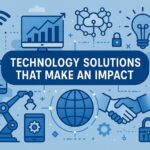
Artificial intelligence (AI) is changing the way businesses, governments, and individuals interact with data. But alongside the innovation lies an often overlooked consequence. As AI systems become more powerful, the risks tied to personal data collection, surveillance, and misuse are mounting at an alarming rate.
Key Takeaways:
- 1. AI Collects Personal Data Often Without Consent
Everyday interactions with AI, like voice commands or searches, feed algorithms without clear user permission. - 2. Personally Identifiable Information (PII) Is at Risk
AI systems trained on large datasets can lead to PII exposure, enabling identity theft and fraud. - 3. Generative AI Can Spread Misinformation
Tools like deepfakes and fake news generators distort truth and can damage reputations or manipulate public opinion. - 4. AI Surveillance Threatens Civil Liberties
Facial recognition and biometric tracking in public spaces risk excessive monitoring and potential discrimination. - 5. Ethical AI Governance Is Emerging but Needs Support
Standards like ISO/IEC 42001 aim to guide responsible AI use, emphasizing transparency and ethical data practices.
Today, AI technologies are woven into everyday life from the smartphones in our pockets to the online searches we conduct daily. What many people do not realize is that these interactions feed vast machine learning models, often without clear consent or understanding. Everything from browsing habits and voice commands to facial recognition scans can now be stored, analyzed, and used in ways that individuals may not have anticipated.
One of the most pressing concerns is how AI handles personally identifiable information (PII). Breaches, leaks, and even intentional data scraping from social media platforms have shown how vulnerable our digital identities are. As AI models are trained on larger and sometimes ethically questionable datasets, the risk of PII exposure grows, leaving individuals open to identity theft, financial fraud, and reputation damage.
Another growing worry is the spread of misinformation fueled by AI hallucinations. Generative AI tools are capable of producing fabricated news articles, fake images, and convincing deepfake videos. These AI generated falsifications can mislead the public, distort political narratives, and inflict real harm on individuals who find themselves misrepresented or falsely implicated in AI outputs.
Surveillance technologies powered by AI such as facial recognition and biometric tracking are expanding into public and private spaces. Without robust governance, these tools risk eroding basic civil liberties and turning everyday activities into data points for monitoring, profiling, or even discriminatory action.
There is growing awareness of these privacy challenges. Efforts like the newly established ISO/IEC 42001 standards for AI governance provide a framework for organizations seeking to deploy AI responsibly. These standards emphasize ethical data use, transparency, and risk management practices to help build trust between AI developers and the public.
Still, the conversation about privacy concerns with AI is only just beginning. For those interested in a deeper exploration of these issues which include real world examples and a breakdown of the top risks to watch for, you can read our full article here: 10 Growing Privacy Concerns with AI
As AI continues to evolve, protecting personal privacy must remain a top priority. Strong governance, ethical data practices, and informed consumers are essential to ensuring that AI technologies serve society rather than compromise it. By understanding the risks now, we can shape a more secure, transparent future for AI and for ourselves..
Why is AI a threat to personal privacy?
AI systems often collect, store, and analyze user data without explicit consent, increasing the risk of misuse or exposure of personal information.
How can AI be used unethically in surveillance?
Through facial recognition and biometric tracking, AI can monitor individuals in public spaces, potentially violating privacy rights and enabling discriminatory profiling.
What can be done to reduce AI privacy risks?
Implementing strong governance frameworks, adopting ethical data practices, and increasing public awareness are essential to mitigating AI-related privacy threats.






